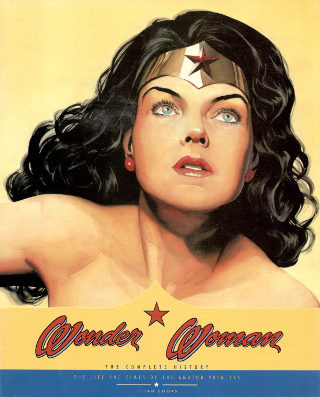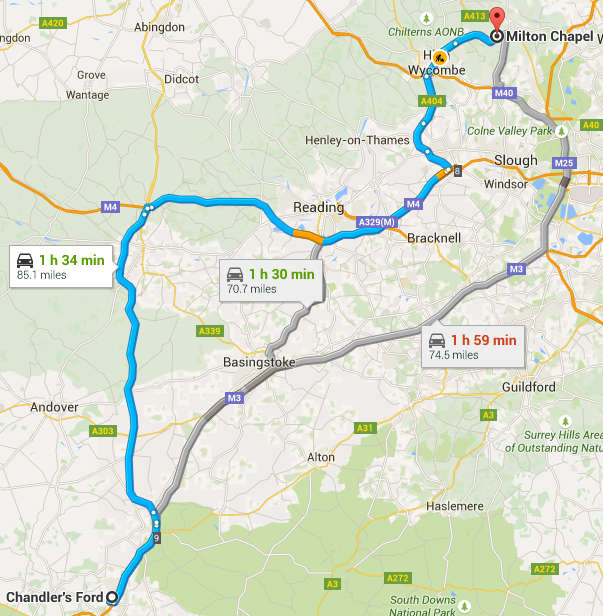2015 — 17 August: Monday
The initial cuppa — not to mention the mouthful of fresh raspberries, followed by ditto of fresh strawberries — disperses the remnants of sleep. Just as well, as I once again had to grovel around the back of BlackBeast to unplug and replug the super duper keyboard's USB plug before Linux was prepared to ACK its existence.
Just as well, too, that...
... I fired up Google Maps to check on the Toyota garage's location; it hasn't moved, but my cunning half-remembered1 route would have brought me out one roundabout too far. In an unlovely and horribly busy traffic bit of Millbrook that I first learned to detest while trying to cross the road (on foot, admittedly) there 30 years ago.
While waiting...
... for my final Yaris repair work to be completed, I walked the length of Third Avenue without seeing any remaining trace of where (in 1958) IBM had temporarily rented buildings to house its initial base of operations outside London for what later became the Laboratory in Hursley. Given the shoddy state of those 'temporary' buildings when I moved into them for my inglorious assignment to document CICS/CMS I was just grateful the roof (mostly) didn't fall in while I was working there.
Thinking of...
... times past, the good Dr Asimov had an epiphany regarding the inadequate state of hard science education in the USA when the Soviets launched Sputnik in 1957. He promptly turned away from SF, and far more towards STEM-based non-fiction. Carl Djerassi's similar epiphany — described in 2015 in his final chunk of memoir — struck him a bit later. But doesn't this sound horribly familiar?
I soon realised that the only way to reverse this decline would be to create a better-informed citizenry, and that the media, notably television, would never accomplish this through their present mode of spending a minute or so of precious broadcast time on grossly oversimplified sound bites dealing with complicated issues requiring extended discussion and critical thought... Much of that [scientific] illiteracy can be traced to the poor quality of our high school education in mathematics and the hard sciences, which still manifests itself as a fear of such subjects among undergraduates at even the most prestigious universities.
If you're already familiar...
... with the late Don Martin's genius for onomatopoeia, you hardly need me (let alone Michael Dirda, writing in the "Washington Post" in December 2007) to remind you that...
Of course, no girl, and certainly no mother, could be expected to appreciate the risqué insightfulness of "Snap Ploobadoof" — the sound of "Wonder Woman releasing her Amazon brassiere."
I dug out my copy of Les Daniels' "Wonder Woman: the complete history"...

Of which, when I bought it, I noted "WYSIWYG, majoring on aspects of bondage, curiously" — but, alas, the index failed me. No matter. More recently, Mr Dirda has been talking about his own new book. Source and snippet:
BNR: Speaking as a widely read person, is the widely read person wiser than others?
MD: I wish. Think of all the widely read but terribly flawed human beings in academe. The whole "campus novel" subgenre is made up of fools and knaves. In general, though, reading in many genres
and cultural traditions — like travel — can't help but broaden one's perspective, enlarge one's sympathies. It's the people who build their lives on a single book — be it the Bible or the Koran
or any other — who tend to become fanatics. Adventurous reading allows one to escape, a little, from the provincialities of one's home culture and the blinders of one's narrow self.
Well, I've always thought so.
Eeny, meeny...
... miney, moe etc. etc. Google Maps is jolly helpful:
